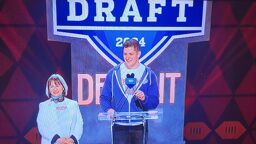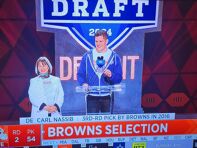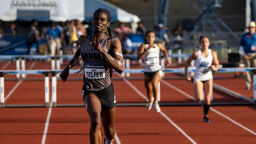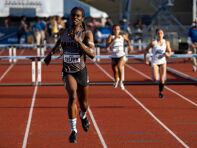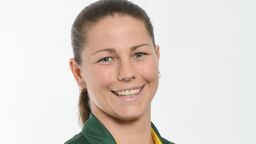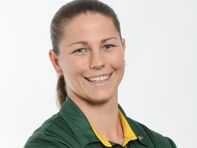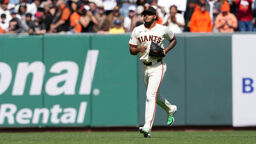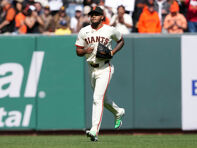When eight European nations that have qualified for the Qatar 2022 World Cup take the pitch in November, they will be using their uniforms to make a statement against discrimination. Kind of.
The captains for each squad representing the Netherlands, England, France, Belgium, Switzerland, Germany, Denmark and Wales will be wearing special OneLove armbands featuring a diagonal striped medley of colors inside a heart logo “to promote inclusion.”
And while that sounds using like a Pride rainbow to make a statement against Qatar’s criminalization of same sex relations, it’s not quite that specific. The OneLove insignia is a rainbow of colors but it’s not the rainbow. It reads a little more like Malt-O-Meal made a knock-off version of a Pride flag.
The OneLove participants also sound like they’re going out of their way to speak about the initiative in as generalized terms as possible.
In one respect, that’s perfectly fine—supporting inclusion is always a good thing, particularly when playing in a host nation like Qatar. Additionally, FIFA’s strict uniform requirements would probably make it all but impossible for players to wear Pride colors during a match.
Even given all that, though, there’s still some hesitancy on the part of the OneLove players to address inclusion and anti-discrimination as they relate to LGBTQ soccer fans. And if players refuse to name any of the groups they’d like to benefit from inclusion, their message becomes a bit muddled.

Consider the statement from England captain Harry Kane, who will be wearing the OneLove armband during every World Cup match in Qatar. He’s saying all the right things and expressing the proper sentiments. But there’s also a nagging feeling he’s leaving a lot of important things unsaid…
“As captains we may all be competing against each other on the pitch, but we stand together against forms of discrimination. This is even more relevant at a time when division is common in society. Wearing the armband together on behalf of our teams will send a clear message when the world is watching.”
Again, there’s nothing wrong or objectionable about his statement. But it also sounds a bit like the words of a schoolkid being forced to give a speech about “Why being mean is bad.” What exactly is that “clear message” and why won’t Kane elaborate on it?
And while referencing the divisiveness in modern society is an easy way to get nods of agreement, this is a problem that runs much deeper than “division.” The question of whether LGBTQ Qataris should have civil liberties is more existential than “You say potato, I say po-tah-to.” Especially when it’s more like “You say homophobic abuse, I can’t say anything at all.”
While Kane is most likely trying to avoid stirring up a problem with Qatari authorities as his club prepares for the World Cup, that’s really not the goal of wearing an insignia of protest. In fact, this anondyne language ends up undercutting the message of inclusion the OneLove campaign is trying to promote in the first place.
As England Football Association executive Mark Bullingham recently noted, several members of LGBTQ soccer fan groups, like Three Lions Pride, have decided not to attend the World Cup.
“I think [LGBTQ fan groups], where they’ve been a bit frustrated is that they’ve asked several follow-up questions [of Qatar’s World Cup representatives] and not yet got the answers,” Bullingham said.
It would be incredibly helpful if the OneLove captains could use their elevated platforms to pressure World Cup and FIFA authorities to address this issue more substantively. After all, this is exactly the kind of discrimination they’re speaking out against.
Contrast all of this with Formula One racer Lewis Hamilton, who stood up for the LGBTQ community by wearing a Progress Pride helmet reading “We Stand Together” during the inaugural Qatar Grand Prix in 2021.
Something as simple as the choice of the Progress Pride colors made it clear beyond a shadow of a doubt that Hamilton was offering a statement of support for LGBTQ fans in a country where they’re looking for all the encouragement they can find.
Make no mistake—on the whole, it’s still a good thing to see numerous World Cup captains wearing the OneLove armbands, and it will start a conversation.
But in a host country notorious for draconian anti-gay laws, the OneLove message would be a lot more effective if those same players were more direct in supporting one of the most marginalized LGBTQ communities on the planet.















